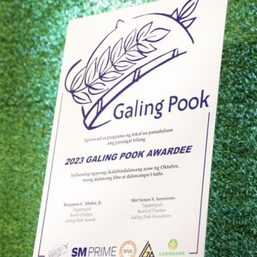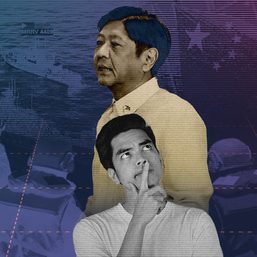SUMMARY
This is AI generated summarization, which may have errors. For context, always refer to the full article.
![[FIRST PERSON] Baseco and COVID-19: 1 year later](https://www.rappler.com/tachyon/2021/04/baseco-tl.jpg)
On March 27, 2020, shortly after the first lockdown, Rappler posted Jeorgie Tonelete’s and Mary Racelis’ account of the situation in Baseco, Manila. While the government focused on COVID-19, the community’s overwhelming worry was, “How will I feed my children?”
One year later, Tonelete and Racelis revisited the experiences of Baseco’s residents. Their conversation in Filipino was written up by Racelis for this piece along with her own summary assessment.
Baseco update: Jeorgie Tonelete
Kabalikat sa Kaunlaran sa Baseco, our People’s Organization (PO), continued assisting the barangay’s distribution of food packs sent by the City of Manila to our estimated 22,000 families. Because the government offices used different household lists, frequent mix-ups left out some of the qualified recipients. Kabalikat helped identify the eligible ones, since we know the community.
The national government was much slower in its response than the LGU, although the initial allocations of P8,000 eventually reached most of the needy families. The second release of P5,000, however, proved slower owing to still conflicting lists.
With the latest 2021 lockdown, the national government is announcing relief allocations in cash or kind to those whose work is disrupted. Remembering the past year’s experiences, people are worried and skeptical about the timely arrival of the next ayuda. Here we are a year later, hearing the same lament: “How will I feed my children?”
NGOs helped a lot. Kabalikat distributed relief goods solicited from external benefactors by its partner NGO, Urban Poor Associates. Included were substantial private business donations often coursed through VP Leni Robredo’s office, then turned over to UPA and Kabalikat.
Early on, the PO realized that despite welcoming outside help, we had to take better control over our situation. Government was prioritizing COVID-19 incidence, quarantine, and hospitalization, while we were struggling for income and livelihoods. Since it was clear that NGOs and the private sector could not be expected to provide support indefinitely, we decided to expand our self-reliance programs.
Members were thus planting vegetables in every bit of space available – from idle plots to cans filled with soil. Soon came harvests of eggplant, kamote leaves (sweet potato), ampalaya (bitter melon), and other vegetables for our food needs. When we got tired of eating the same thing day after day, we would sell our produce to buy rice, food, and basic necessities. That included load for our cellphones, children’s e-books, and Zoom meetings.
Several of those working in factories were already being called to return to work but many could not comply because public transport was almost non-existent. Moreover, the required COVID-19 RT-PCR test costs P5,000. Although you could get it for P3,800 at the Red Cross, that was still too high. Can a returning janitor afford such an expensive swab test?
Reflecting on the past year, I think one of the greatest strains it brought was insufficient information about current and future scenarios being planned by the government for the urban poor. Our people had to find their own solutions.
Will vaccines make a difference?
It’s hard to say what vaccination will mean. There is so much confusion about it that most people don’t want to risk a jab. They watch TV and know they could die. “That might happen to me!”
An important issue is indemnity. Even if vaccination is free, what if the injected persons get really sick? They won’t be able to work and their entire household will be quarantined. Who will help them? Who will pay for their medicine, food, home care, hospitalization – and maybe even burial?
Then there are those with underlying health complications. Should they get vaccinated? Have a blood test first? What will that cost? Who will pay for it? How do you find out about the possible consequences? Even if we convene a community Zoom meeting where a doctor can answer these questions, that will not really help much. Information is not enough. People need to know: can that doctor be held responsible if the listeners get sick after vaccination, maybe even die? Clearly, not! What the urban poor need is a guarantee from the government that if the vaccination brings about illness or death, we will get indemnity or compensation.
Many here don’t even believe that reported deaths come mainly from COVID, despite the barangay classification. If you test positive, the entire barangay system swoops down on you. They even send the police to force you into the quarantine center. When the infected person gets there, the care and food are so poor that their health deteriorates. If the next move is hospital, that’s when they die. Their bodies were already weakened by previous illnesses even before the pandemic, like heart disease, cancer, diabetes, or high blood pressure. Those are the real causes of death.
Actually, residents are surprised that not as many test positive for COVID as one would think. Could it be that their constant exposure to disease while growing up in Baseco gave them immunity? Some even speculate jokingly that because garlic peeling is a major source of income in Baseco, the smell alone drives the virus away.
Given these cost and indemnity uncertainties, many conclude: Why risk vaccination? We are survivors. Kaya natin ‘to!
My message to the president
Establish a community clinic for our over 100,000-person population that is open 24/7 with doctors and nurses always in attendance. That way people would not have to go to the hospital for an illness. We would even organize to maintain the premises and support the program.
Recognize that our community is doing everything we can to be self-sufficient, like planting vegetables, getting good seeds, and learning new job technologies.
Support our People’s Plan for onsite upgrading. Government needs to support our organized efforts, not suppress them.
Mary Racelis: Implications of Jeorgie Tonelete’s testimony
In describing the many challenges facing urban poor communities during the year-long pandemic, leader Tonelete raises serious community concerns.
First: uncertainty over the immediate and long-range future of their families, reinforced by the government’s sporadic and unpredictable approaches to their pandemic-related economic and health threats. That in turn undermines their capacity to develop strategies (diskarte, paraan) that, in order to be successful, need a modicum of predictability, especially for families in the informal economy.
Second: risks that poor people have to assess daily. Tonelete highlights the ambivalence of facing serious illness or death from a vaccination with no clear guarantee of government compensation for the victim’s family. This is in contrast to the possibility of not getting the virus or of recovering quickly after a positive test result. Which option poses the greater risk?
Third: mistrust between communities and government. Our Kabalikat leader deplores government’s apparent unwillingness to recognize the strengths of communities capable of serving local needs through effective organization.
These three concerns need resolution: uncertainty, risk and mistrust. Is there still time for a reorientation of governance? Or must we wait for the next election to find out? – Rappler.com
Jeorgie Tonelete is the president of Kabalikat sa Kaunlaran sa Baseco, Manila, which partners with NGO Urban Poor Associates (UPA)
Mary Racelis is a social anthropologist at the Ateneo de Manila University and a trustee on the UPA Board.
Add a comment
How does this make you feel?
![[OPINION] Corruption and COVID response](https://www.rappler.com/tachyon/2021/02/tl-covid-corruption-1280.jpg?fit=449%2C449)


![[Time Trowel] Evolution and the sneakiness of COVID](https://www.rappler.com/tachyon/2024/02/tl-evolution-covid.jpg?resize=257%2C257&crop=455px%2C0px%2C1080px%2C1080px)



![[Newsstand] The Marcoses’ three-body problem](https://www.rappler.com/tachyon/2024/04/tl-marcoses-3-body-problem.jpg?resize=257%2C257&crop=451px%2C0px%2C1080px%2C1080px)
![[Edgewise] Preface to ‘A Fortunate Country,’ a social idealist novel](https://www.rappler.com/tachyon/2024/02/a-fortunate-country-february-8-2024.jpg?resize=257%2C257&crop_strategy=attention)
![[New School] When barangays lose their purpose](https://www.rappler.com/tachyon/2024/02/new-school-barangay.jpg?resize=257%2C257&crop=414px%2C0px%2C1080px%2C1080px)

There are no comments yet. Add your comment to start the conversation.